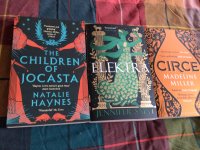We don't talk about Hestia much... but I just remembered that my yiayia did! I wondered why, so I researched her. Here is what I found... I think it has something to do with the fact that she was a housewife and she loved her family.. Looking at what she represents, it kind of makes sense. Here's what I found about her:
The Greek goddess Hestia was revered as the goddess of the hearth and home. In ancient Greek mythology, she was known to be a benevolent deity, who brought warmth and comfort to the home. Through her presence, she blessed the family and provided them with a sense of safety and security.
Hestia was the first-born child of Cronus and Rhea, and she was the sister of other Olympian gods such as Zeus, Poseidon, and Hades. Unlike her brothers and sisters, she did not engage in any power struggles or battles. She preferred to remain neutral and instead focused her attention on her household duties. Hestia was considered one of the most important deities, as the hearth represented the heart of the home. People would light a fire in her honor and worship her by placing offerings of food and drink on their hearth.
In ancient Greek culture, a hearth was often considered the most important part of the home. It was where food was cooked, and family members gathered to eat, share stories, and bond. Hestia's role in domestic life was crucial, and she was responsible for creating the warmth and sense of security felt within the home. Her presence was believed to bring good luck and happiness to the family.




